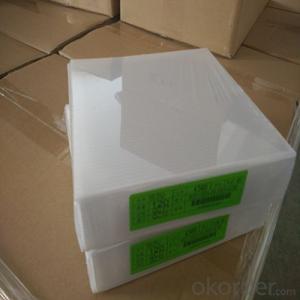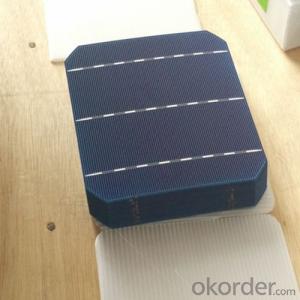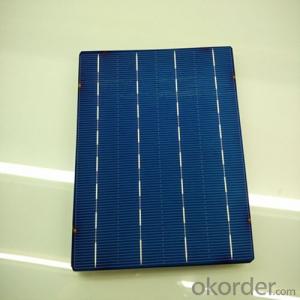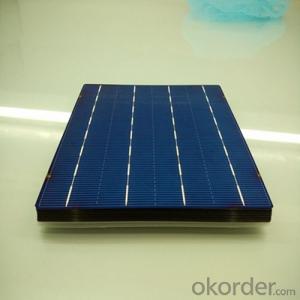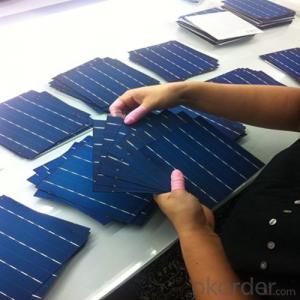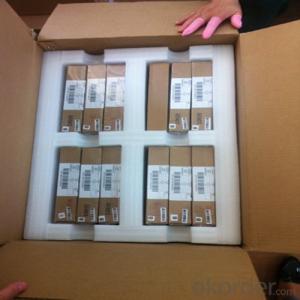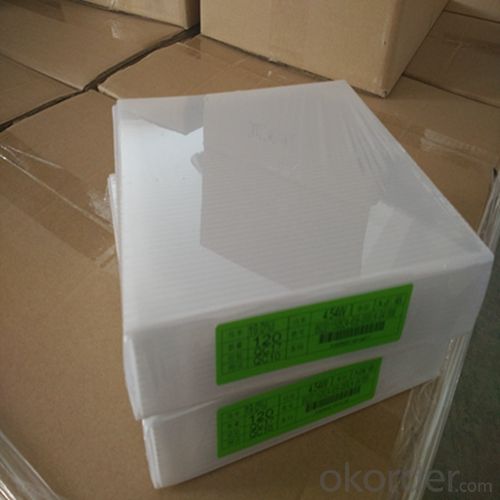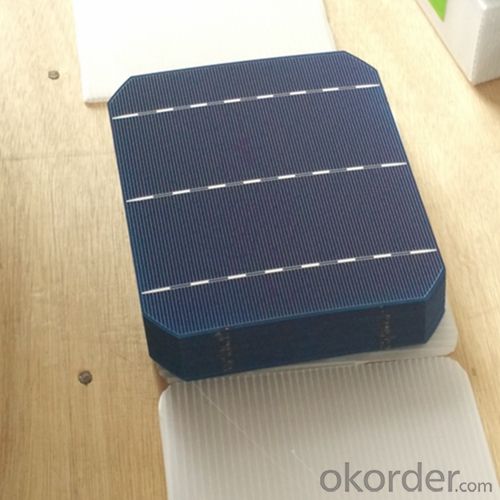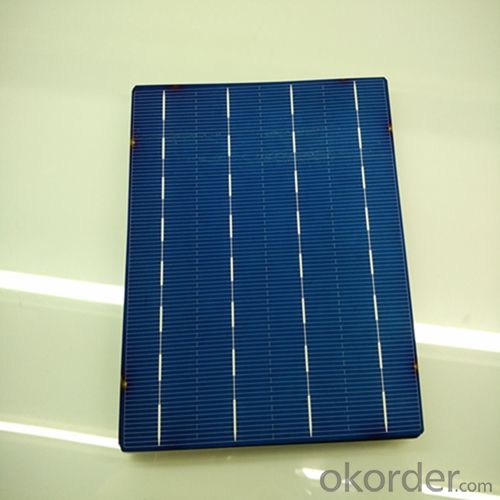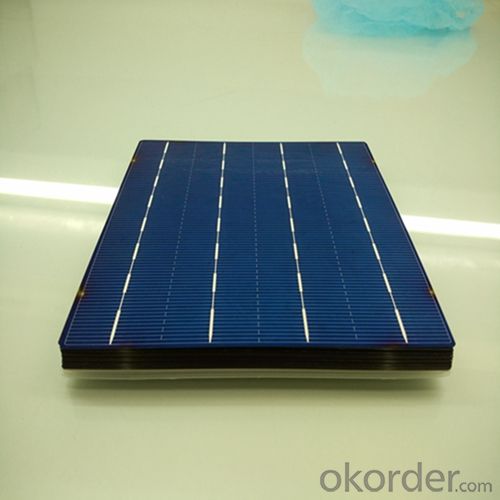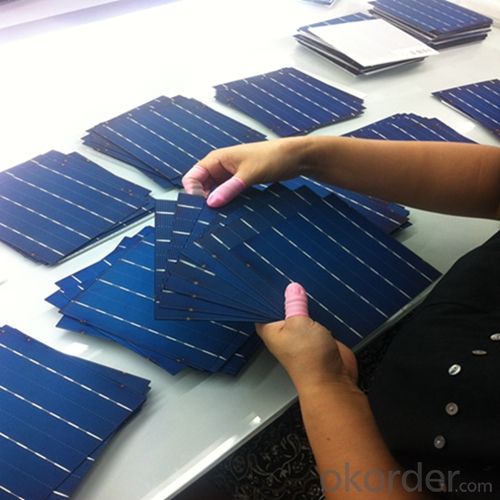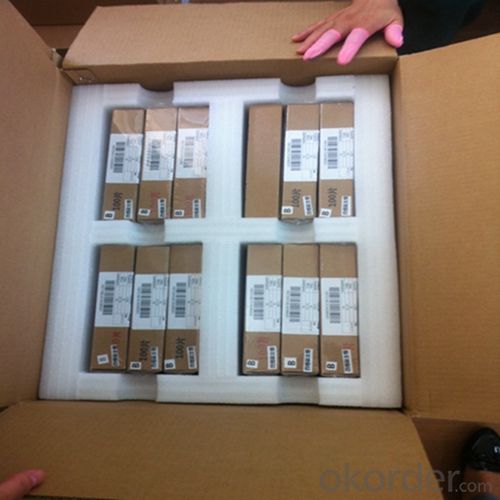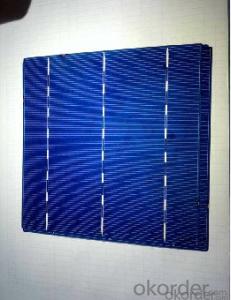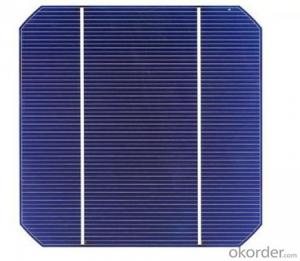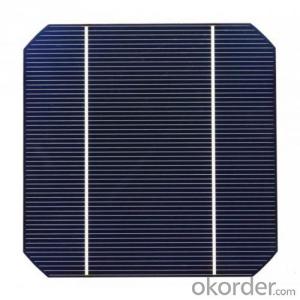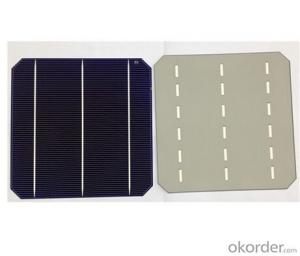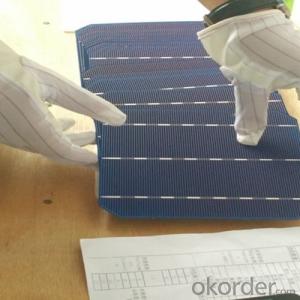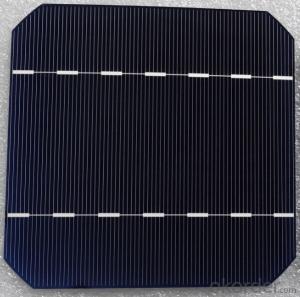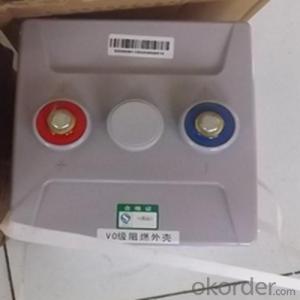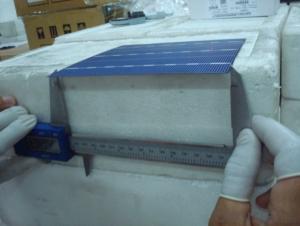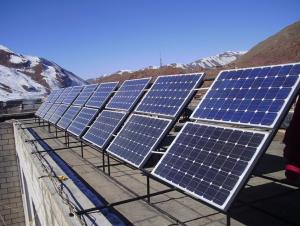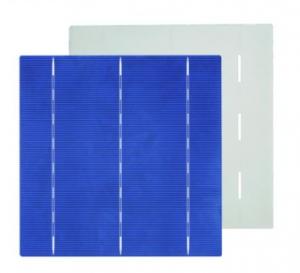Multijunction Solar Cells:Mono 156x156mm2 Solar Cells Made Low Price
- Loading Port:
- Shanghai
- Payment Terms:
- TT OR LC
- Min Order Qty:
- 4000 watt
- Supply Capability:
- 650000 watt/month
OKorder Service Pledge
OKorder Financial Service
You Might Also Like
Benefits of Solar Power:
Now is a great time to go solar and harvest the power of the sun. Here is our top ten list of the benefits to installing solar power:
When installed, solar energy is free – no resources are consumed
Help to lessen our dependence on heavily polluting coal power stations
Fossil fuels can't last forever, future generations will appreciate the effort
Characteristic of Mono 156X156MM2 Solar Cells
You are gaining energy independence - add battery backup power for even greater energy security
The cost of electricity is only going to rise – insure against that rising cost
Quality solar power and water adds value and appeal to your home
Specifications of Mono 156X156MM2 Solar Cells
Solar PV systems are easily upgraded in future - aim to make your house a net energy producer!
Solar panels offer a long lifetime of low maintenance service, maybe 30-40 years
Your friends will think you're great!
You'll feel great for doing your bit for the environment!
Mechanical data and design
Format | 156mm x 156mm±0.5mm |
Thickness | 210μm±40μm |
Front(-) | 1.5mm bus bar (silver),blue anti-reflection coating (silicon nitride) |
Back (+) | 2.5mm wide soldering pads (sliver) back surface field (aluminium) |
Temperature Coefficient of Cells
Voc. Temp.coef.%/K | -0.35% |
Isc. Temp.coef .%/K | +0.024%/K |
Pm.Temp.coef. %/K | -0.47%/K |
Electrical Characteristic
Effiency(%) | Pmpp(W) | Umpp(V) | Impp(A) | Uoc(V) | Isc(A) | FF(%) |
18.35 | 4.384 | 0.526 | 8.333 | 0.63 | 8.877 | 78.39% |
18.20 | 4.349 | 0.526 | 8.263 | 0.63 | 8.789 | 78.54% |
18.05 | 4.313 | 0.525 | 8.216 | 0.63 | 8.741 | 78.32% |
17.90 | 4.277 | 0.524 | 8.161 | 0.625 | 8.713 | 78.04% |
17.75 | 4.241 | 0.523 | 8.116 | 0.625 | 8.678 | 77.70% |
17.60 | 4.206 | 0.521 | 8.073 | 0.625 | 8.657 | 77.36% |
17.45 | 4.170 | 0.519 | 8.039 | 0.625 | 8.633 | 76.92% |
17.30 | 4.134 | 0.517 | 8.004 | 0.625 | 8.622 | 76.59% |
17.15 | 4.096 | 0.516 | 7.938 | 0.625 | 8.537 | 76.80% |
17.00 | 4.062 | 0.512 | 7.933 | 0.625 | 8.531 | 76.18% |
16.75 | 4.002 | 0.511 | 7.828 | 0.625 | 8.499 | 75.34% |
16.50 | 3.940 | 0.510 | 7.731 | 0.625 | 8.484 | 74.36% |
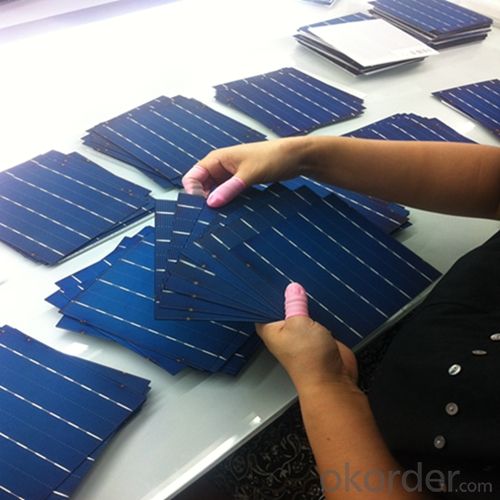
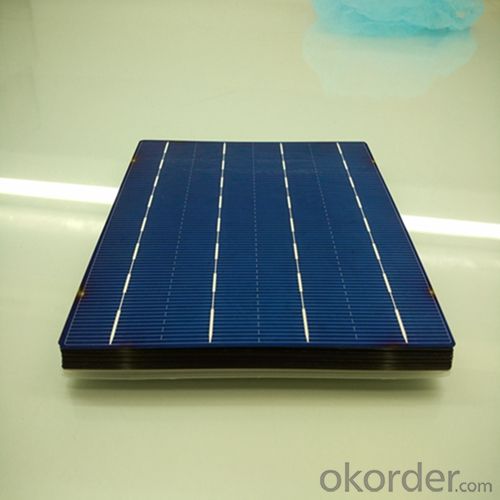
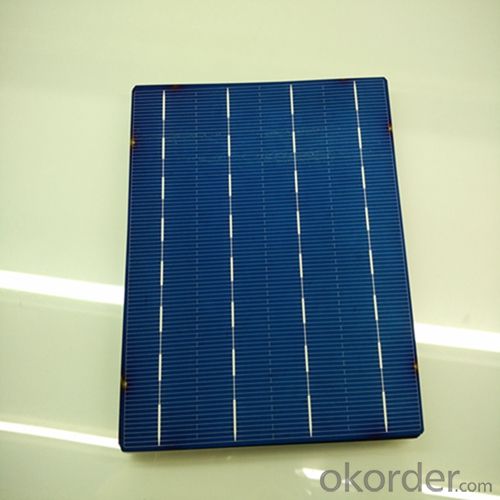
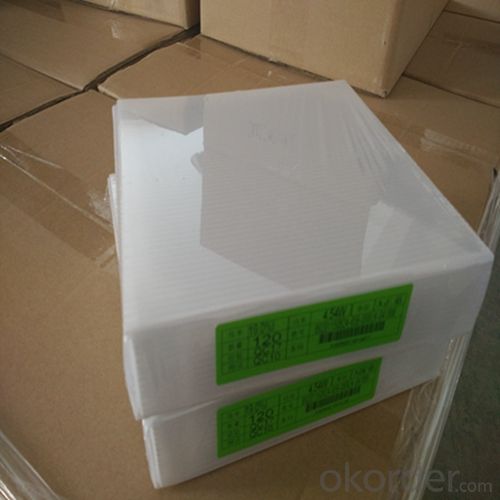
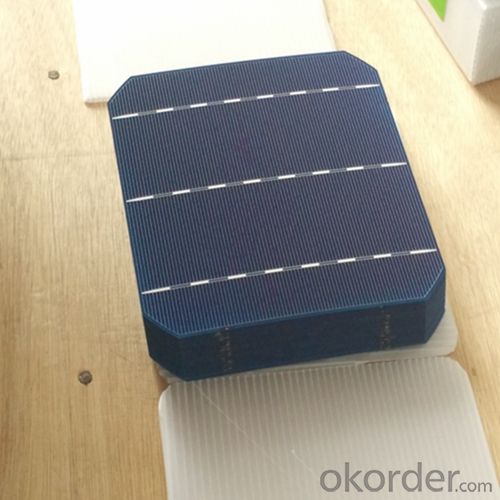
FAQ
Q: What price for each watt?
A: It depends on the quantity, delivery date and payment terms, generally Large Quantity and Low Price
Q: What is your size for each module? Can you tell me the Parameter of your module?
A: We have different series of panels in different output, both c-Si and a-Si. Please take the specification sheet for your reference.
Q: What is your size for each module? Can you tell me the Parameter of your module?
A: We have different series of panels in different output, both c-Si and a-Si. Please take the specification sheet for your reference.
- Q: What is the efficiency of solar cells?
- The efficiency of solar cells refers to the percentage of sunlight that can be converted into usable electricity. It varies depending on the type of solar cell technology used, but current commercial solar cells typically have an efficiency range of 15% to 22%. However, research and development efforts are continuously improving solar cell efficiency, with some laboratory prototypes achieving efficiencies exceeding 40%.
- Q: How do solar cells perform in areas with high humidity?
- Solar cells typically perform slightly less efficiently in areas with high humidity due to the presence of moisture in the air. The water vapor can reduce the amount of sunlight reaching the solar cells and can also cause corrosion over time. However, modern solar cell designs have improved significantly to mitigate these effects and ensure reliable performance even in humid conditions.
- Q: What is the difference between a monocrystalline and polycrystalline solar cell?
- Monocrystalline solar cells are made from a single crystal structure, resulting in a higher efficiency but also higher costs. On the other hand, polycrystalline solar cells are made from multiple crystal structures, making them less efficient but more cost-effective.
- Q: Can the 156x156mm high efficiency single crystal cells assembly function better compared to the traditional one?
- The media already commented a lot on the 156x156mm high efficiency single crystal cells assembly, which make me wonderabout its real function.
- Q: Can solar cells be used to power electric gates?
- Yes, solar cells can be used to power electric gates. Solar panels can capture sunlight and convert it into electricity, which can then be used to power various devices, including electric gates. This renewable energy source provides a sustainable and cost-effective solution for powering electric gates in areas where electricity supply is limited or unavailable.
- Q: How does the size of a solar cell affect its performance?
- The size of a solar cell directly affects its performance. Generally, larger solar cells have the ability to generate more electricity compared to smaller ones. This is because larger cells have a greater surface area to capture sunlight, resulting in a higher conversion efficiency and increased power output. Additionally, larger cells are better at handling heat dissipation, which can improve their overall performance and durability.
- Q: What's the relationship between solar energy materials and solar cells?
- Solar cells are made by the solar energy materials, which are actually basically silicon, a very developed and commonly used materials in the solar energy industry.
- Q: How to manufacture solar cells?
- An experiment can show the whole process of manufacturing the solar cells.
- Q: Are there any library or exhibition halls where I can show students at school how the solar cells works?
- Well, it is hard to say when there would be one talking about solar cells.
- Q: How does solar cell technology apply to our daily life?
- Nowadays, people use solar cells to generate electricity which is used in a lot of houses.
Send your message to us
Multijunction Solar Cells:Mono 156x156mm2 Solar Cells Made Low Price
- Loading Port:
- Shanghai
- Payment Terms:
- TT OR LC
- Min Order Qty:
- 4000 watt
- Supply Capability:
- 650000 watt/month
OKorder Service Pledge
OKorder Financial Service
Similar products
Hot products
Hot Searches
Related keywords
